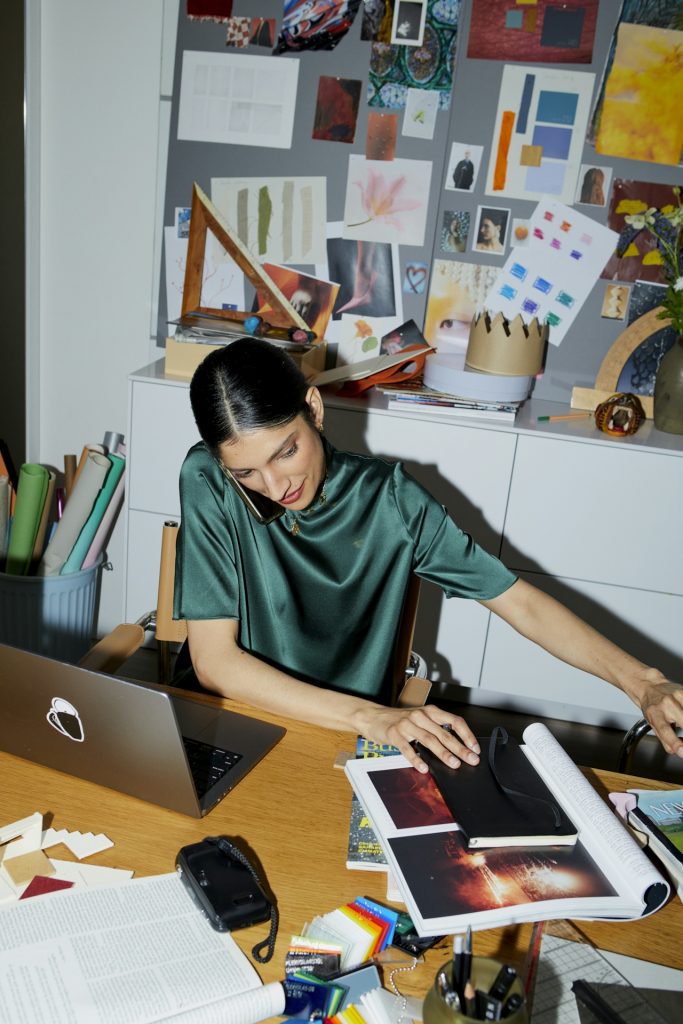Growing up in the food industry, Leila Keshavjee noticed some gaps in the market. Everybody was being told to eat better but better options didn’t exist.
Keshavjee believes food is strongly correlated to well-being and while many food products claim to be good for us, the truth is they’re really not. Back in 2016, everything on the shelves was about packing protein into our diets, but Keshavjee thought about healthy food in a different way. She wanted to create something that tasted great and was good for our bodies without being just another grocery store trend. So, she decided to launch Happy Pops.
We talked to Keshavjee about how she launched Happy Pops, the unique flavours she creates and the biggest challenges she faces as an entrepreneur.
Why did you decide to launch Happy Pops?
I was studying kinesiology and as I was learning about different ingredients, I found products that claim to be healthy are often not. There are marketing companies that say things are vegan and gluten-free but on the back, there’s a whole lot of other stuff in it. How do you tell people to eat better if there aren’t better options?
I’ve grown up in the food industry so I’ve seen the healthy side and the indulging aspect. I wanted to create something in between. Not the healthiest popsicle but a product that you could feel good about having that was also tasty. Another part of it was that I’m sensitive to dairy but I love dessert and frozen treats, so that’s why I went with Happy Pops.
How do you decide on the Happy Pops flavours?

I found that flavours out there were so boring. We’re South Asian and Canada is such a diverse country, but the flavours that we often see in packaged goods are just not diverse, like apple cinnamon, cherry and grape. How do you get someone to eat better if the flavours don’t resonate with them? So we started with flavours like mango, guava and passionfruit then started going into matcha, tamarind and soursop. We poll our community and bring flavours that they want to see and flavours that are nostalgic. That’s what gets people excited and that’s what gets people coming back.
Can you walk us through the process of starting Happy Pops?
It’s been a long road and we’ve been really consumer-driven. My dad is a food and beverage manufacturer so he gave me a start with a little space in his facility and my first little piece of equipment. I was doing it all myself for the first few weeks and then people started to buy it and pick up on it. I bought an ice cream sandwich company 10 months later which was already in some independent specialty stores, and that gave us a little bit of an in. After that, someone reached out who had tried the popsicles and wanted to get them in their store. Then we went on Dragon’s Den but decided not to take a deal. Finally, we rebranded and here we are.
How did COVID-19 affect your business?
We were selling to a lot of corporate catering and events. That was the bulk of our business before COVID-19. We did tech companies, law firms, banks, weddings, schools and birthdays. It was so fun! And then all of the sudden we lost 70 per cent of our revenue overnight. So, we started selling online.
I think authenticity is so important and we just reached out to our community and people started ordering. We spend very little on digital ads. We decided instead to create a referral program and rely on our community to spread the word.
What’s one of the biggest advantages of being a small business?
We focus on listening to our customers and creating flavours they wanted to see. We have the ability as a small business to create things faster than a big company. We think that if customers are going to come to us, we want them to have what they want. If a few people ask for a flavour, chances are, there’s a demand. And, the cost of doing something like that wasn’t huge, so we might as well make 100 popsicles in a certain flavour and try it out because we might find our next bestseller.
What are the biggest challenges when it comes to the food industry?
Being young, female and minority-owned has had its challenges. The food industry is tough and very competitive. In order to get into grocery stores, someone else needs to come out. With a product that’s frozen, e-commerce isn’t a natural play and the freezer section, in general, is dominated by a few major players with money. It’s taken time to break through and I think there’s still so much more to go. It takes money, but it also takes time and energy. We want to grow sustainably—this isn’t a fad product.
What are your 2021 plans for Happy Pops?
We want to be in more grocery stores and grow outside of Ontario. We don’t have as much of a presence outside Ontario and there’s a lot of opportunities there. The U.S. is also on the radar for next year.

What’s one way people can support small businesses like your own?
Word of mouth is so powerful. I don’t think people realize how powerful it is and how much value it can bring to a small business. Just sharing what you bought on Instagram is helpful because everybody is influential. When people follow you on social media, it’s because they trust you or align with you in some way. So when you share a product, people can ask you your thoughts about it which they can’t do with an ad.







